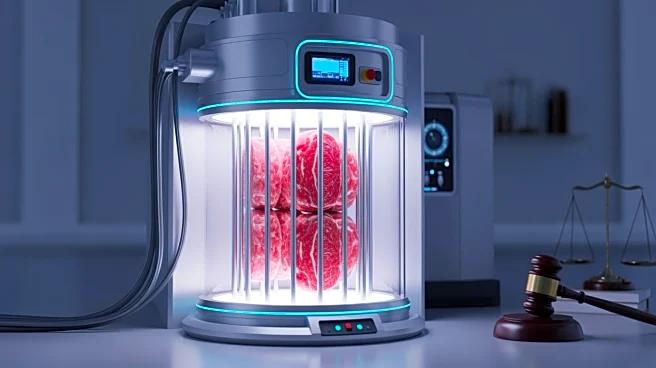What's Happening?
Upside Foods, a commercial producer of lab-grown meat, has filed a lawsuit against the state of Florida over a ban on the manufacture, sale, or distribution of food products made from cultured animal cells.
The lawsuit, supported by the Institute for Justice, argues that the ban violates the Constitution's provision against protectionist measures that favor in-state businesses over out-of-state competitors. Governor Ron DeSantis signed the bill into law in May, emphasizing support for traditional agriculture and dismissing lab-grown meat as 'fake.' The legal challenge is ongoing, with the U.S. District Court for the Northern District of Florida allowing the case to proceed after denying the government's attempt to dismiss it.
Why It's Important?
The lawsuit highlights the tension between emerging food technologies and traditional agricultural interests. If successful, Upside Foods' challenge could set a precedent for other states considering similar bans, potentially reshaping the regulatory landscape for lab-grown meat in the U.S. The case underscores the broader debate over food innovation, consumer choice, and the role of state versus federal regulation. A ruling in favor of Upside Foods could open markets for lab-grown meat, offering consumers alternatives to conventionally raised meat and impacting the agricultural industry.
What's Next?
The case will continue in the trial court, with potential implications for other states that have enacted or are considering similar bans. Stakeholders, including agricultural groups and food technology companies, will be closely monitoring the proceedings. The outcome could influence legislative actions in other states and affect the market dynamics for lab-grown meat products. As the legal battle unfolds, discussions around food safety, consumer rights, and interstate commerce are likely to intensify.









